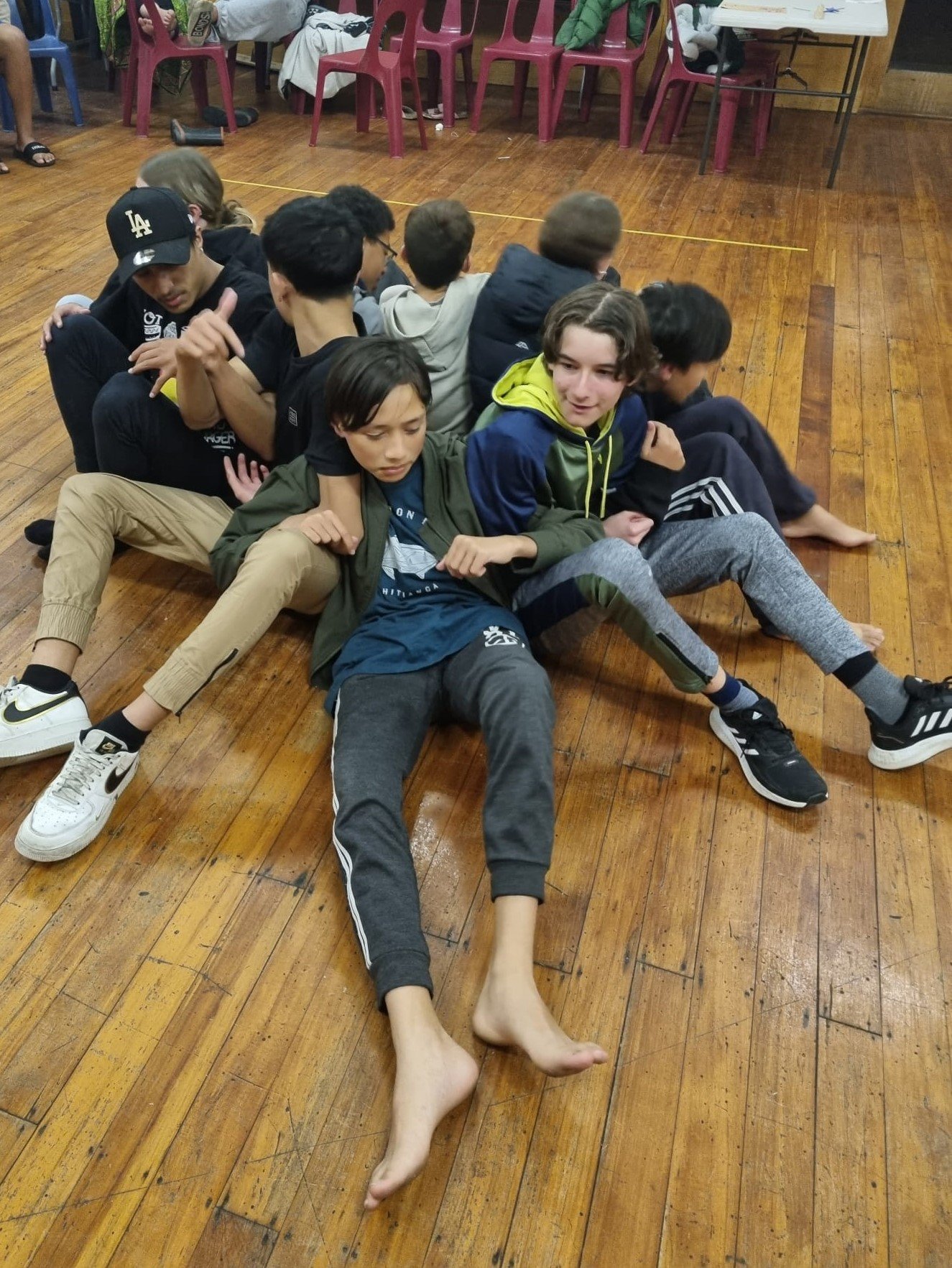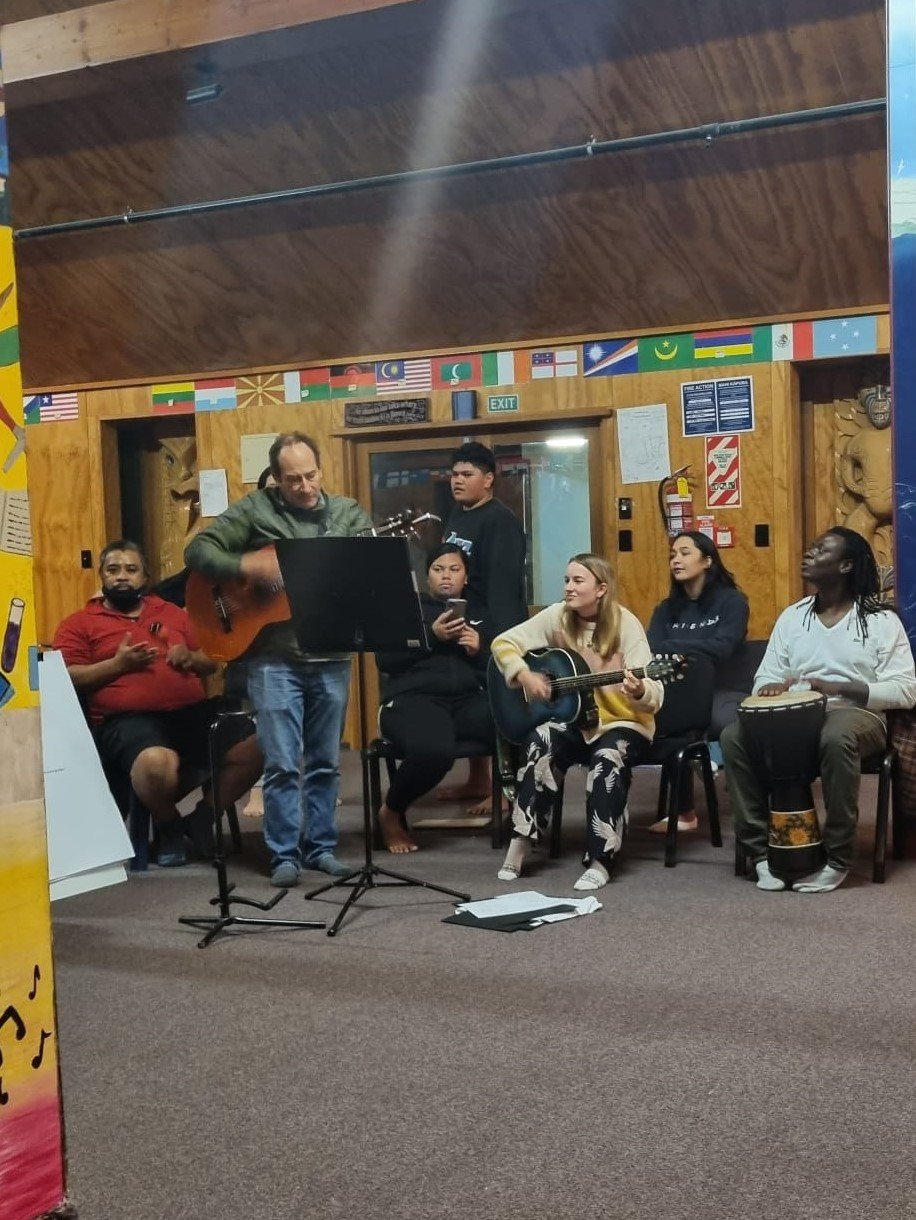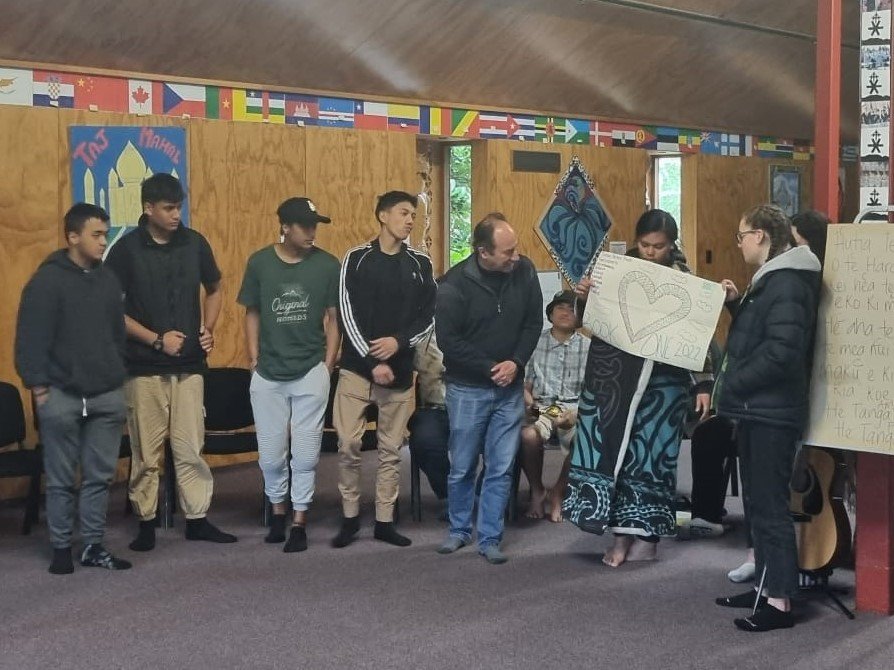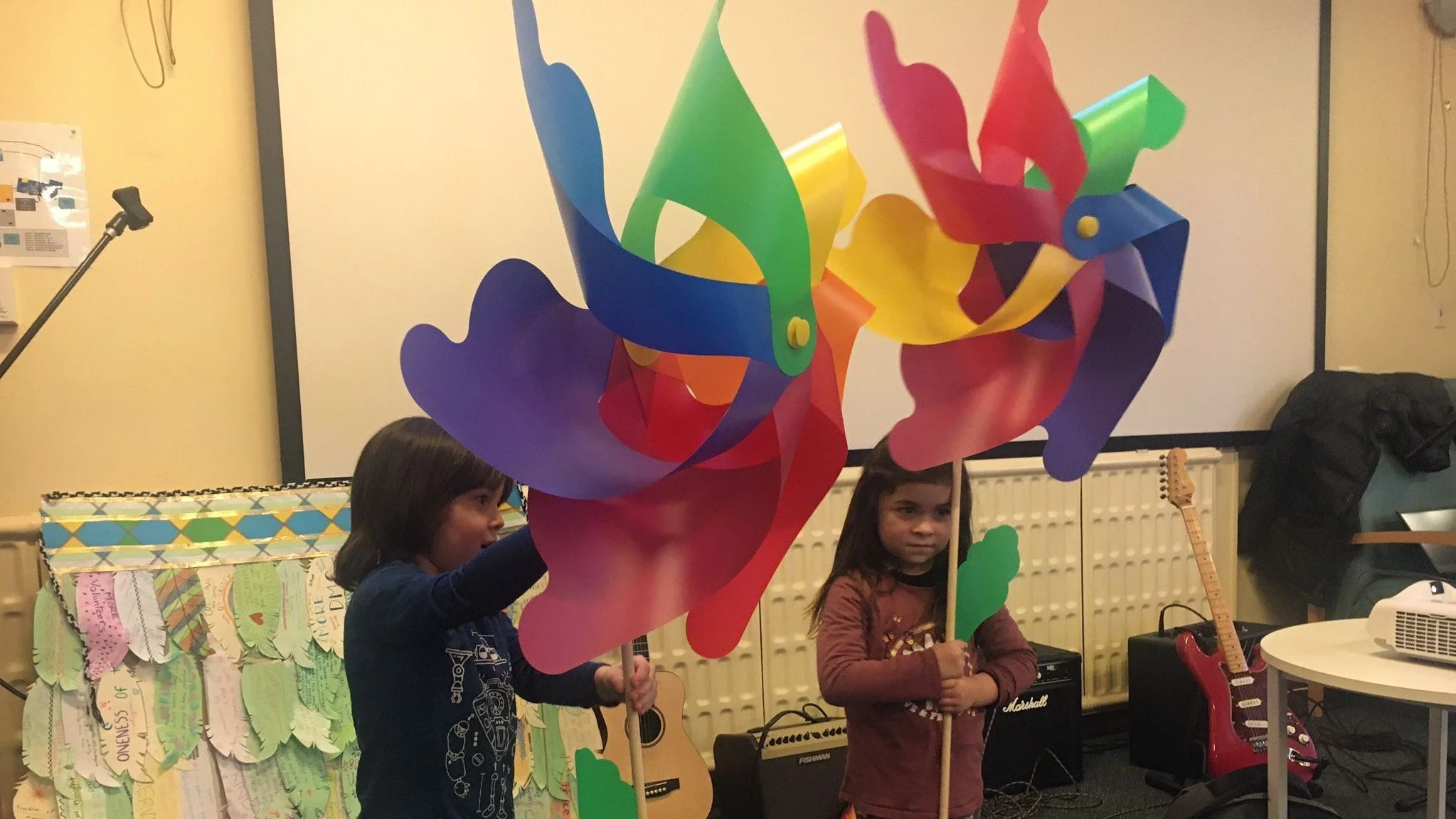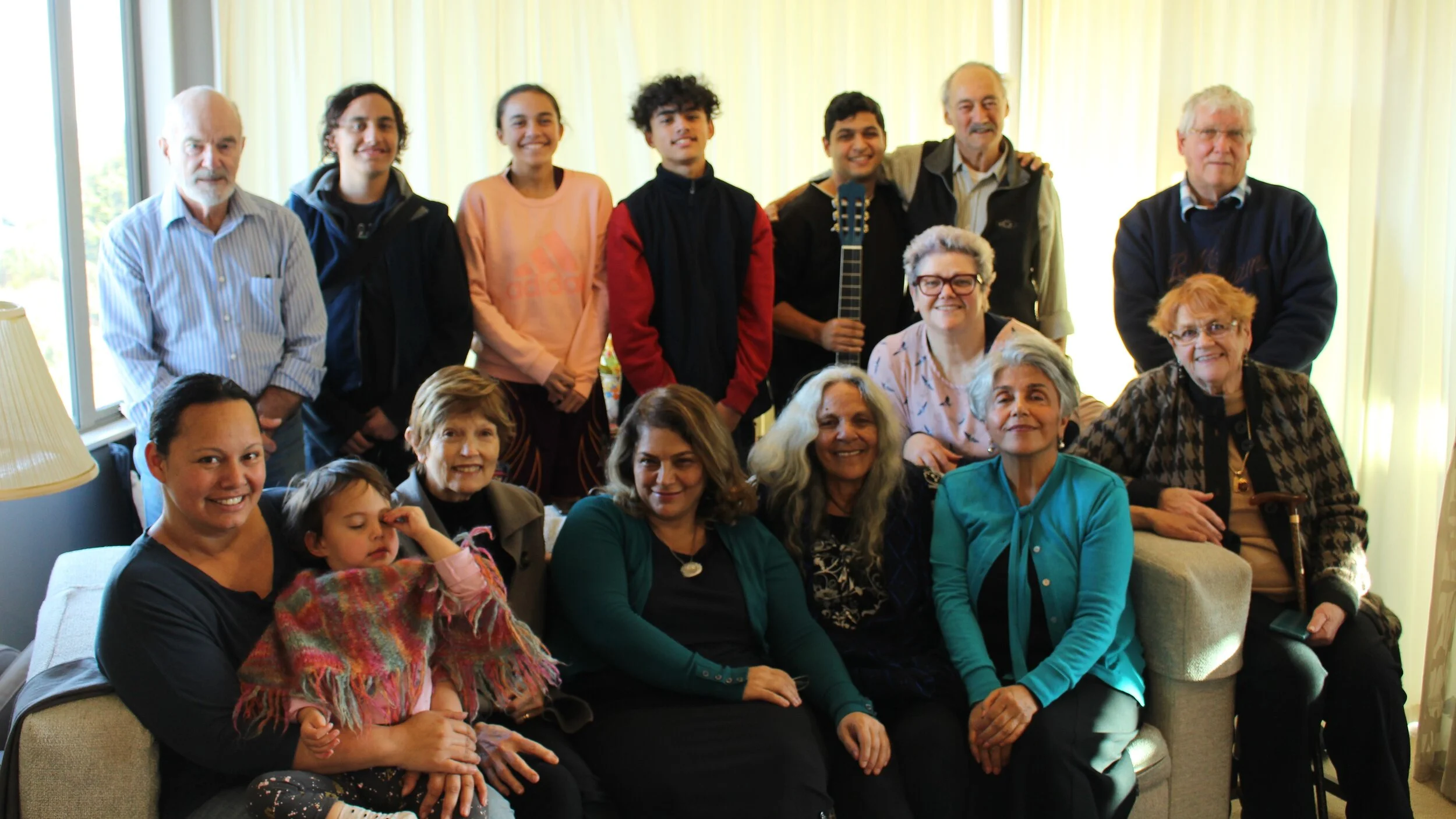Vibrant 'Winter Initiatives' in Hawke’s Bay and Waikato
Following on from the success of the recent global conferences and the wave of energy, purpose and opportunity they generated, a number of communities embarked on ‘Winter Initiatives’ to continue and accelerate the momentum from the world conferences.
Hawke’s Bay cluster
In Hawke’s Bay, a dynamic and committed core team of believers organised a programme from July 8-12 at the Te Aranga Marae. The programme included reaching out to the wider Flaxmere neighbourhood with invitations. A total of 62 people participated (32 Bahá’ís and 30 friends of the Faith) and several Ruhi books and texts for the childrens’ class and junior youth curriculum were shared.
There was an evening ‘Fireside and Arts’ programme which included team bonding activities, an evening of singing and music and another evening of collaborative games and activities. These were family events and all ages participated fully and together.
A number of outdoor sporting activities had been set up and each day all ages went outside and played together as a group. This helped to release excess energy and develop a team spirit. It was noted by participants that it was really positive to see all ages playing together and allowing for the differences in abilities. A variety of board games were set up permanently in the whare kai and were in constant use during free time. Again, all ages mixed together when playing these.
The theme for the four day childrens' programme was 'Consultation and Compassion'
Each evening there were meaningful discussions about the Faith’s Teachings and collaborative whole group artistic activities. All ages interacting together, with full family groups working as one. Almost every day there was music and singing after lunch, including songs for the very young children like ‘We are Drops of One Ocean’ as well as songs in English, Tongan, Māori and Samoan. Repeating the songs each day assisted with learning and confidence.
Two junior youth texts were studied, ‘Observation and Insight’ and ‘Habits of an Orderly Mind’ and there were two Ruhi Book study groups. The groups gave presentations about the content they had been studying on the final day.
A final group reflection and singing session was held where the following summarised feedback was received from the participants.
Being on a marae space, having a sense of family and community.
Enjoyed the whole team recreational spaces for all groups to be together – singing, sports, arts
Learning new songs and practicing them
Meeting new people and reconnecting with people we haven’t seen in a long time
Being able to do the sessions in an organised space and getting the book finished
The good vibes, it is good to be around good people
The laughter
All the outside play and time allowed for it. More next time
The chess and board games being available all the time. More next time
The evening activities, varied and fun. The energy and fun. More next time
The food and kitchen crew were repeatedly praised
Enjoyed being able to be there with all ages, in full family groups
Learning about the overnight protocols on sleeping on a marae
Waikato cluster
Vivified by the world conferences and keen to keep the momentum going, the Waikato cluster was able to follow-up their community-building efforts with a ‘Winter Initiative’. Local agencies regarded the initiative as a prime opportunity to awaken more souls to Bahá’u’lláh’s vision for the world of humanity.
The initiative had two stages.
Stage One
Fourteen participants, including eight adults and six youth, gathered at one of the friend’s homes in Te Awamutu on the morning of July 9 to study materials from Books 2 and 6. With their thoughts on teaching and elevated conversations, four adults and four youth set out after lunch for an hour’s outreach in the neighbourhood. Fifteen homes were visited and meaningful conversations were shared with four families.
As the street selected was close to the one visited during their ‘summer initiative’, the team was able to mention about their neighbours who are currently engaged in community-building activities with young people at their local home.
New contacts have been made and these neighbourhood families will be revisited so friendships can be developed.
The following day, the team gathered at the home of one of the Hamilton friends prior to embarking on an outreach to homes in Fairfield. Fruitful connections were made with some local families. A junior youth noho was scheduled immediately after the initiative.
Following are some comments from the team:
Our main aim for this initiative was to provide the opportunity to practise having meaningful conversations with our families, friends, neighbours, colleagues, and acquaintances.
Our study was beautiful and uplifting. During this time, we managed to extract some key concepts for each educational imperative and core activities and shared some concrete examples. Using these concepts and examples, we split into pairs and did role plays to practise having conversations with people. As two of the friends had no outreach experience, they found this practice space very helpful and were able to explain the core activities beautifully with people.
Our next step is to have this study/practice session at each cycle so that more people will be able to articulate what our community building activities would look like in their own environment.
Video clip from the Waikato Winter Initiative
Stage Two
An intensive institute training programme (sometimes called a ‘Ruhi intensive’ followed as part of the Waikato Winter Initative. It was held from 11-17 July at the Rawhitiroa Marae with 22 participants attending from six clusters (Waikato, Auckland, South Waikato, Ruapehu, Triumph, Tairawhiti). There were 10 friends of the Faith and Ruhi Books 1, 3 and 7 were studied.
The majority of the tutors were young adults aged between 21 and 25 years old. Below is a summary of highlights and learning from the ‘intensive‘.
Highlights/Strengths
The intensive was characterised by a high degree of love and unity. Everyone attending was motivated to return for future intensive study.
Understanding was definitely advanced and capacities built.
The arts were (generally) well integrated into the programme. Music, drama and storytelling brought vibrancy to the space.
There were several first time participants. Several of the more experienced participants demonstrated readiness to apply their learning in the field of service.
Others arose to serve in new ways within the intensive itself.
Learning/Next Steps:
Outlying areas within the region are still struggling to advance participants through the sequence in a timely and effective fashion.
There still seems to be a place for well-run sub-regional intensive training spaces at this time to rapidly build capacity across the region, particularly for those in isolated localities.
The number and combination of participants attending meant new participants were able to gain a strong vision of the community building process and their place in it.
A tutor retreat is a necessary element to prepare for the intensive. Tutors must be confirmed early in the cycle to ensure their participation for both the preparation spaces and intensive itself.
The intensives play an important role in supporting tutors to gain experience in a supported environment.
Waikato youth intensive







